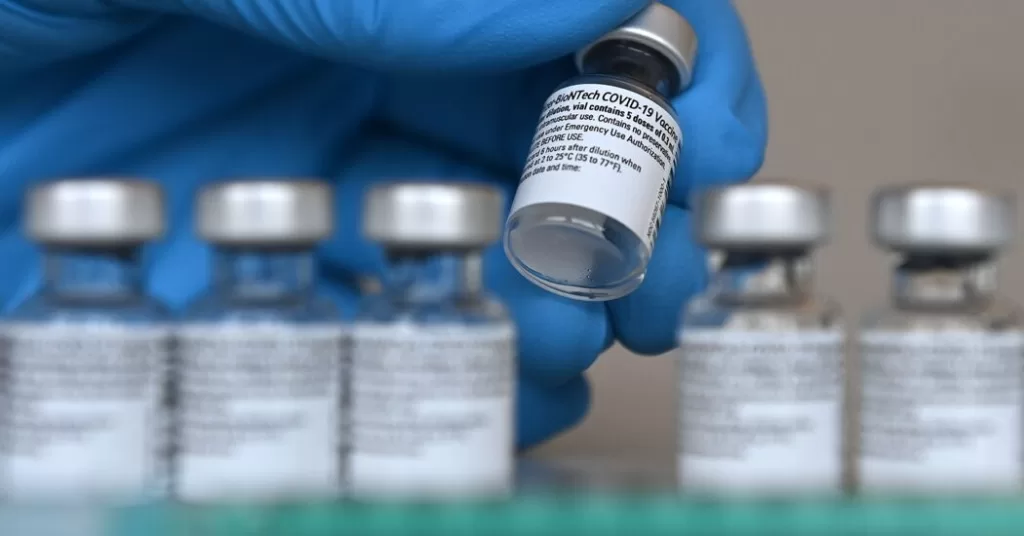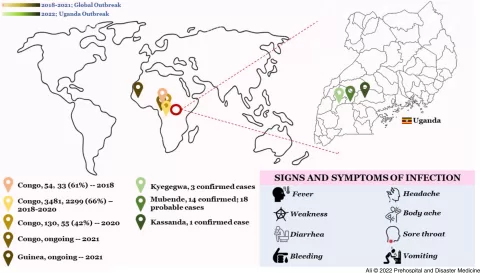Vaccines play a crucial role in promoting health and wellness, particularly through childhood vaccines that help protect the youngest members of our society from serious illnesses. With a growing focus on vaccine safety, the effectiveness of these preventative measures has come under scrutiny, especially in discussions surrounding chronic disease in kids. Reports like the one from the Make America Healthy Again (MAHA) Commission highlight concerns about vaccine schedules, raising questions about their impact on childhood diseases. Yet, extensive research has consistently demonstrated that vaccines are vital in safeguarding public health and have drastically reduced the incidence of once-common diseases. As the debate continues, it’s essential to weigh the benefits of vaccination against the backdrop of improving health outcomes for children across the nation.
Immunizations, a cornerstone of public health initiatives, serve to shield children from potentially devastating diseases and have evolved significantly over the years. By analyzing the relationship between early-life inoculations and various health conditions, such as chronic ailments in youth, the recent report from the Make America Healthy Again Commission aims to investigate alternative factors affecting child well-being. Discussions surrounding the assurance of vaccine safety and the potential consequences of misinformation are paramount in understanding their role within modern medicine. Moreover, recognizing the extensive body of evidence supporting the effectiveness of vaccines is essential in maintaining a healthy society. Ultimately, the focus should remain on achieving optimal health outcomes and ensuring a healthy future for the next generation.
Understanding the Impact of Childhood Vaccines
Childhood vaccines have been a foundational aspect of public health for decades, significantly reducing the incidence of preventable diseases. Vaccination schedules are carefully crafted by health authorities to protect children against a range of illnesses, from measles to polio. These vaccines not only shield individual children from serious health complications but also contribute to herd immunity, protecting those who cannot be vaccinated due to medical conditions. The ‘Make America Healthy Again’ report’s focus on questioning the expansion of these schedules overlooks the extensive research devoted to understanding vaccine efficacy and safety.
Moreover, numerous studies involving thousands of children have concluded that vaccines do not cause chronic diseases or conditions such as autism. These findings are critical as they uphold the effectiveness of ongoing vaccination initiatives designed to promote health and wellness among children. Reports indicating vaccine safety, like those from the Infectious Diseases Society of America, emphasize the robustness of scientific research in dismissing unfounded fears. It is essential for parents to remain informed and to base their decisions on current evidence rather than misinformation.
The Debate Over Vaccine Safety and Efficacy
In light of the recent ‘Make America Healthy Again’ report, vaccine safety has come under increased scrutiny. Critics argue that a deeper investigation into vaccine trials and side effects is necessary. However, this perspective often neglects the overwhelming data supporting vaccine safety. The scientific community consistently affirms that vaccines undergo rigorous testing before approval and continual monitoring once in use. Issues raised about clinical trial rigor and reporting must be contextualized; they do not negate the extensive history of successful vaccinations contributing to public health.
Conversely, unchecked skepticism can lead to public health crises, as evidenced by the recent measles outbreaks predominantly affecting unvaccinated children. The narrative around vaccines should prioritize protecting children from preventable diseases rather than swaying towards conspiracy theories. Advocacy for informed discussions about vaccine safety is crucial; it not only addresses parental concerns but also reinforces trust in vaccinations as key to advancing health and wellness, ultimately aiming to combat chronic diseases that plague many American children today.
Addressing Chronic Diseases in Children
Chronic diseases in children have been on the rise, prompting discussions about various contributing factors, including environmental influences and lifestyle choices. While the ‘Make America Healthy Again’ report highlights the impact of ultra-processed foods and technology on children’s health, the role of vaccines should not be conflated with these issues. Vaccines have been instrumental in not just preventing infectious diseases but also in reducing the burden of chronic conditions that can arise from severe illnesses. Public health initiatives rooted in vaccination help prevent complications that can lead to long-term health problems.
Addressing chronic diseases requires a comprehensive approach that includes nutrition, mental health, and preventive care through vaccinations. Continued research into the links between various health factors and children’s chronic conditions is necessary, but it is equally important to acknowledge how vaccines protect against life-threatening diseases and subsequent chronic health issues. Discussion should focus on comprehensive strategies that encompass vaccines, dietary habits, and environmental factors to enhance the overall health of children. This multifaceted approach is paramount in efforts like ‘Make America Healthy Again,’ as it aims to tackle a myriad of challenges facing childhood health.
The Role of Public Perception in Vaccine Uptake
Public perception plays a critical role in the decision-making process regarding vaccination for children. The increasing spread of misinformation has led to hesitation or refusal of vaccines, directly impacting public health. The ‘Make America Healthy Again’ report raises questions regarding vaccine safety, a move that may foster fear and uncertainty among parents. Understanding the factors that contribute to vaccine hesitancy is essential for public health officials. Clear communication about the importance of vaccines, grounded in scientific evidence, is crucial for combatting misconceptions.
Building public trust in vaccines requires consistent messaging from healthcare professionals and the wider scientific community. Physicians and health departments must engage with communities actively, addressing concerns and debunking myths related to vaccines. Collaborative efforts to educate the public on the mechanisms of vaccine action and the extensive safety protocols in place can enhance acceptance. Adopting a proactive stance on vaccine education can significantly influence childhood vaccination rates, ensuring that children receive the protection they need.
The Importance of Vaccination in Preventive Healthcare
Vaccination remains one of the most effective tools in preventive healthcare, significantly reducing instances of serious diseases. The aim of vaccination programs is not just to eliminate outbreaks but to establish overall health and wellness standards that protect future generations. As the ‘Make America Healthy Again’ report emphasizes the prevalence of chronic diseases, it is vital to remember that vaccines contribute significantly to preventing diseases that can lead to long-term health issues. Ensuring high vaccination coverage fosters a healthier population capable of becoming more resilient to health challenges in the future.
Preventive healthcare strategies, including vaccinations, serve as a frontline defense against potential health crises. Through vaccination, we safeguard against diseases that can lead to hospitalizations and chronic conditions, enabling children to lead healthier lives. The emphasis on vaccines within preventive healthcare aligns with broader initiatives aimed at improving the public health landscape to avert crises. Thus, supporting widespread vaccination initiatives is critical as it lays the groundwork for achieving better health outcomes for all.
The Impact of Vaccine Misinformation
Vaccine misinformation poses a significant barrier to effective public health responses, particularly in the context of childhood vaccinations. The ‘Make America Healthy Again’ report has the potential to fuel public doubt about vaccines, which can deter parents from vaccinating their children. Misinformation can spread quickly through social media and other channels, leading to misguided beliefs about vaccine safety and necessity. To combat this trend, it is crucial to address misinformation head-on, providing clear, factual information about the science behind vaccines.
Efforts from health organizations and public health officials must include education campaigns tailored to families, focusing on the real benefits of vaccines and the risks associated with not vaccinating. Increasing awareness about the thorough testing vaccines undergo before approval and the safety monitoring conducted thereafter is essential. It is imperative to create an environment where parents feel confident in the vaccination process, mitigating fears that stem from misinformation. By fostering educated discussions about vaccination, we can enhance public health initiatives and ensure higher vaccination rates.
Legislation and Policy Changes Regarding Vaccination
The legislative landscape surrounding vaccinations is continuously evolving, reflecting both public opinion and scientific advancements. Recent discussions, as highlighted in the ‘Make America Healthy Again’ report, indicate an intent to evaluate current vaccination policies. Policymakers must balance the pursuit of public health with respecting parental rights and concerns. Nevertheless, evidence-based policy changes that enhance vaccination rates can dramatically improve public health outcomes, especially for children who are more susceptible to infectious diseases.
It is critical for legislation to support and encourage, rather than inhibit, vaccination programs. Effective policies should be driven by scientific evidence that underscores the importance of vaccines in preventing outbreaks of communicable diseases. Advocating for legislation that ensures access to vaccines while safeguarding the population’s health can foster greater community compliance. Moreover, collaborating with healthcare professionals in the legislative process can enhance the support for vaccination initiatives, making a lasting impact on children’s health.
Building Trust in Vaccination Programs
Building trust in vaccination programs is essential for increasing uptake among communities. Given the mixed messages stemming from reports like ‘Make America Healthy Again,’ efforts to reinforce trust become even more imperative. Transparency regarding vaccine trials, efficacy, and safety can help dispel doubts and guide families toward making informed health decisions. Engaging with trusted figures in communities, such as local healthcare providers and public health officials, can foster dialogues that reinforce the value of vaccines.
Trust can also be built through community-driven information campaigns that highlight positive health outcomes associated with vaccinations. Success stories from families who have vaccinated can serve as powerful testimonials to the importance of protecting children’s health. Moreover, addressing concerns and answering questions through face-to-face interactions or community events can create a supportive environment for parents. With sustained efforts to build trust, vaccination rates can be strengthened, contributing to healthier generations.
The Future of Health and Vaccination Advocacy
The future of health care, especially regarding vaccinations, hinges on proactive advocacy and public engagement. The ‘Make America Healthy Again’ report emphasizes the need to reassess childhood health paradigms, but it should not discount the vital role vaccines play in public health. Community leaders and health advocates must unite to uphold vaccination as a pivotal component of preventive healthcare strategies. By forging collaborations and partnerships, supportive public health policies can be molded to prioritize children’s vaccination.
Advocacy efforts must be rooted in scientific data to guide policymaking and public health initiatives. Fostering an environment of informed choices around vaccinations encourages communities to embrace health and wellness practices effectively. Innovative outreach efforts that tap into digital media, community events, and educational forums can empower parents with the knowledge needed to make vaccination decisions for their children confidently. This holistic approach ensures that vaccination remains an essential part of a comprehensive strategy to promote public health.
Frequently Asked Questions
What is the importance of childhood vaccines in preventing chronic diseases in kids?
Childhood vaccines play a crucial role in preventing chronic diseases by ensuring that children are protected against infectious diseases that can lead to serious health complications. Vaccines stimulate the immune system to fight off diseases, which helps maintain overall health and wellness in children.
Are childhood vaccines safe and effective according to recent studies?
Yes, extensive research has shown that childhood vaccines are safe and effective. Numerous studies over decades have confirmed that vaccines do not cause chronic diseases, such as autism. Instead, they are designed to prevent potentially deadly diseases, ensuring the health and wellness of children.
How does the ‘Make America Healthy Again’ report view vaccines?
The ‘Make America Healthy Again’ report raises questions about the childhood vaccine schedule and its potential links to health issues. However, it overlooks the extensive body of scientific evidence that supports vaccine safety and efficacy, which has been instrumental in preventing outbreaks of diseases.
What are some common misconceptions about childhood vaccines?
Common misconceptions about childhood vaccines include the false belief that they cause autism or other chronic diseases. These claims have been debunked by numerous scientific studies, which consistently reaffirm that vaccines are safe and critical for the health of children.
How can parents ensure they are making informed decisions regarding vaccines for their children?
Parents can make informed decisions about childhood vaccines by consulting healthcare providers, reviewing scientific literature on vaccine safety and efficacy, and staying updated with recommendations from reputable health organizations. This ensures children receive the necessary immunizations that promote health and wellness.
What role do vaccines play in addressing epidemics among unvaccinated children?
Vaccines play a vital role in controlling epidemics by building herd immunity. When a significant portion of the population is vaccinated, the spread of diseases is reduced, thus protecting those who cannot be vaccinated, like infants or immunocompromised individuals. Recent measles outbreaks highlight the risks unvaccinated children face.
What conflicts of interest should be considered regarding vaccine safety?
While discussing vaccine safety, it’s essential to recognize that rigorous studies are conducted independently. Any potential conflicts of interest are managed by strict regulatory guidelines to ensure that vaccine development and assessment prioritize public health over profit, supporting the commitment to safe childhood vaccines.
How do vaccines contribute to the overall health and wellness of children?
Vaccines significantly contribute to the overall health and wellness of children by preventing serious illnesses that can lead to lifelong complications or death. By immunizing children against a range of diseases, vaccines help reduce healthcare costs and promote a healthier population.
What outreach efforts are being made to counter misinformation about vaccines?
Numerous outreach efforts, including public health campaigns and educational programs, are aimed at countering misinformation about vaccines. Health professionals work to educate parents about the safety and importance of childhood vaccines to ensure informed decision-making.
Why is it important to maintain an updated childhood vaccine schedule?
Maintaining an updated childhood vaccine schedule is crucial to protect children from emerging infectious diseases and outbreaks. Vaccines are updated and expanded to address new health threats, ensuring comprehensive protection and promoting long-term health and wellness in kids.
| Key Points | Details |
|---|---|
| MAHA Report Purpose | The report funds on addressing chronic childhood diseases, including vaccine schedule concerns. |
| Vaccine Schedule Growth | The increase in vaccines is linked to preventing more severe diseases. |
| Claims of Autism Link | Kennedy’s report seeks to explore a dubious vaccine-autism connection. |
| Vaccine Safety Studies | Many studies have shown no link between vaccines and autism, contradicting report assertions. |
| Expert Opinions | Experts like Dr. Tan stress vaccines’ safety and the critical public health benefits they provide. |
| Public Health Impact | Vaccines have significantly improved health outcomes, preventing serious disease outbreaks. |
Summary
Vaccines play a crucial role in public health, as highlighted in the recent ‘Make America Healthy Again’ report. This document attempts to scrutinize childhood vaccines while overlooking the wealth of scientific evidence affirming their safety and effectiveness. Experts assert that vaccines have saved millions of lives and continue to be a cornerstone of preventative health measures, especially given the resurgence of diseases like measles in unvaccinated populations. The narrative questioning vaccine safety not only undermines public confidence but also poses a significant risk to community health by potentially increasing the prevalence of vaccine-preventable diseases.
The content provided on this blog (e.g., symptom descriptions, health tips, or general advice) is for informational purposes only and is not a substitute for professional medical advice, diagnosis, or treatment. Always seek the guidance of your physician or other qualified healthcare provider with any questions you may have regarding a medical condition. Never disregard professional medical advice or delay seeking it because of something you have read on this website. If you believe you may have a medical emergency, call your doctor or emergency services immediately. Reliance on any information provided by this blog is solely at your own risk.








